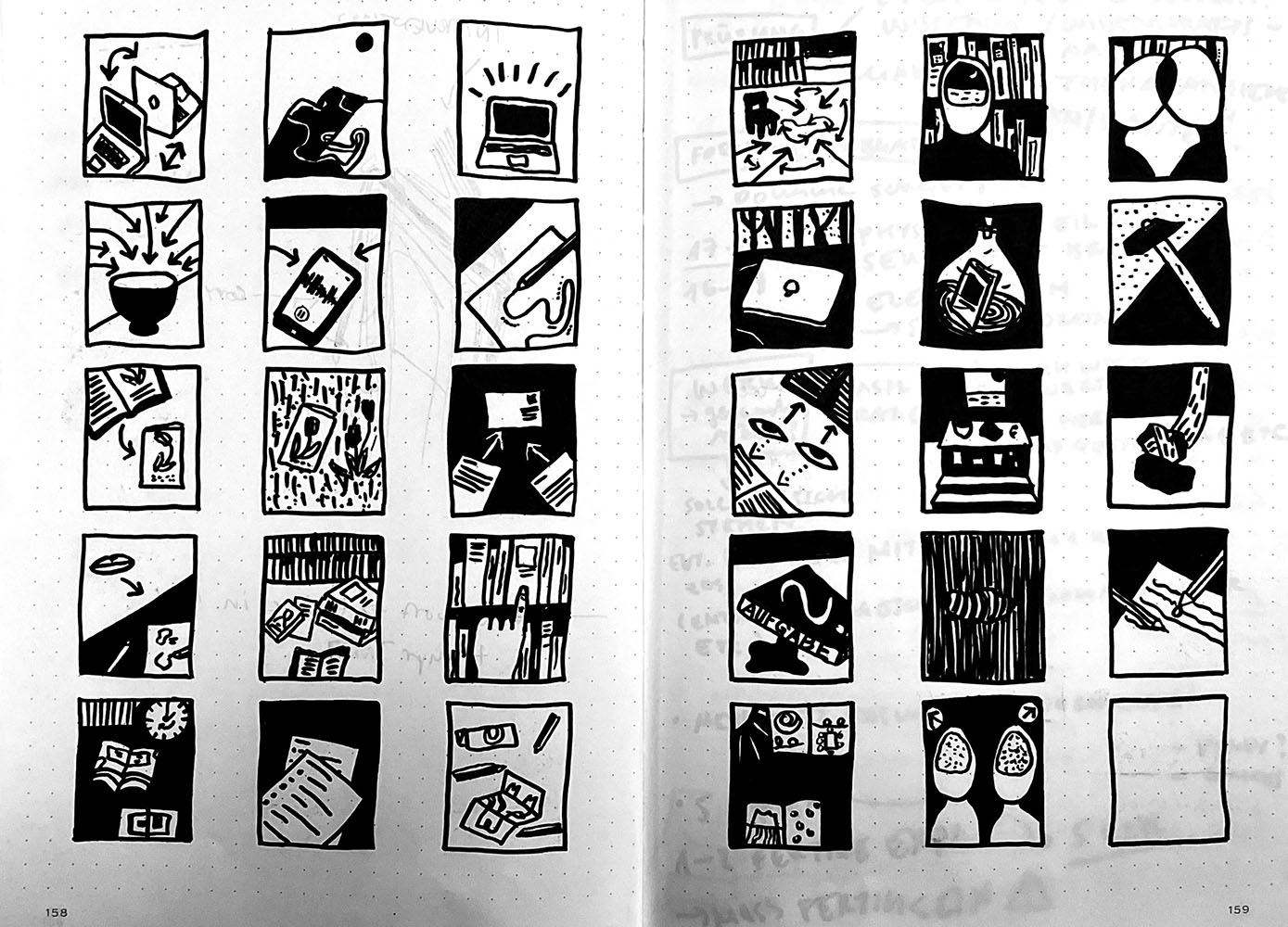During the one-month stay at the Alpenhof Anthonie de Groot and Gianna Rovere explored different ways of working together. For example on walks, with commenting on each other’s writing, with audio, image-search, collages or writing letters. In all these experiments they were interested in each other’s working methods; in how they research, link and spin on. Coming from different disciplines, it was in language, in text, where they met. They used the Library of Andreas Züst for research. They gave themselves the notion of «longing» as a starting point, as a feeling that should guide their research. As a feeling that keeps coming up, describing gaps and voids; what is missing and what one longs for. From the research and reflection, a collection has emerged, which is built as a dialogue. They call it their «database», which they will take further on to continue working on other projects.
Excerpt from the «database»:
Keywords:
1. New beginning
(No reset, no forgetting, but also no too strenuous «referencing».)
(Deliberately avoiding discourses and contexts.)
Yes, but I like discourse and making connections.
2. Walks
3. Ways
(Bumpy and steep, smooth and gentle. Eyes on it or just on the side of the path, where we gather in thought and observe, forget some things and yet remember others when we come back from the same walk and tell each other about it.)
It is like reading without concentration. The not conscious reading, where the thoughts are completely elsewhere and I could not repeat what the last lines were.
(Or the moment when one has actually already fallen asleep while reading. Dreaming creeps into the reading movement and only becomes noticeable when it ventures too far away from reality.)
Idea for method: Late in the evening, with tired eyes and heavy hand.
4. Not being concrete
5. Not thinking about the goal
(I seal the target in a glass ball and put a cork on it. Slowly, the steam of habit builds up in it, so that the view of the target from the outside is not quite as clear as it was at the beginning, and the temptation to break the glass and take the target is not quite as great.)
We have already talked about the physical. Warn me before you take the hammer because you can’t take it anymore.
(Maybe I have to take the hammer, weigh it in my hand, feel the weight, the violence, in order to be able to put it back into the toolbox unused?)
Yes, or use it once briefly, not with full force, but just so lightly, to give a little satisfaction to the desire.
6. Not thinking about the actual thing
(Not thinking about it, that you might think about it, that what you don’t think about might become the focus.)
Does that perhaps also mean that what we are doing here is a wrong approach? Maybe we also forget for a day why we are actually here.
(I imagine that would be nice! But do you think we can actually forget why we are here?)
By cleaning for a whole day and drinking beer, maybe. Then it’s already two days when the next one is a hangover day.
7. Casually
(By the way while running.)
(By the way, listening.)
(Looking past.)
8. Collecting
(It burns under my fingers. Want to hide my restless greedy look.)
Or you get involved with this «method». I mean, we’re talking about taking the focus away, from the in-between. Let’s collect and document but in the process, fill our database, and then think about the «point of interest».
(I think writing about restlessness is a way to engage myself in the method. Because when I write about it, I take the wind out of it.)
Not writing about restlessness, but writing restlessly?
9. Productivity in not being productive
10. Database
(Stone bench, showcase.)
A book, haha.
(A book about stone benches, locked behind glass and only to be looked at with a key and white gloves.)
11. Archive
12. Document
13. Record
The challenge in the whole endeavor begins to emerge:
How to look at the gap when there is nothing in place for a gap to form?
(How to understand the thought processes of the other person and understand and respond to and use our different approaches?)
Text: Anthonie de Groot, Gianna Rovere
April 2023







